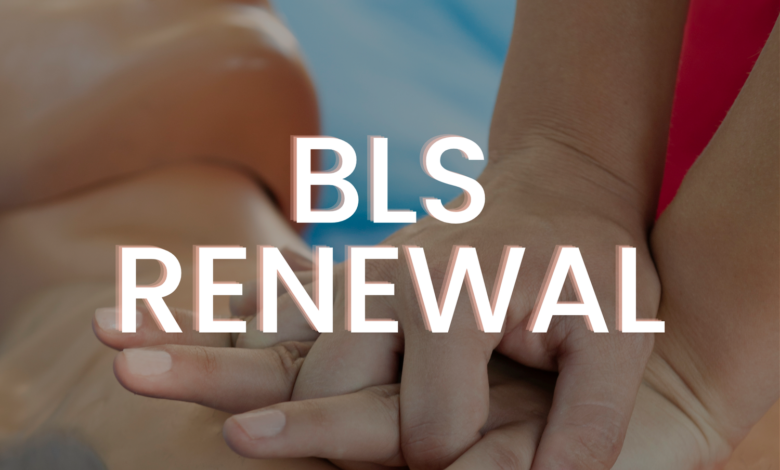Keeping Skills Sharp: The Importance of BLS Renewal

In the fast-paced world of healthcare, staying current with life-saving techniques is not only a professional responsibility but a crucial one. Basic Life Support (BLS) is a fundamental skill that healthcare providers use to respond effectively to emergencies such as cardiac arrest, choking, or respiratory distress. While obtaining BLS certification is an important step, BLS renewal is equally vital to ensure that medical professionals maintain their skills, confidence, and readiness to save lives.
The Necessity of BLS Renewal
BLS techniques and guidelines evolve over time as medical knowledge advances. What might have been considered best practice a few years ago may be updated due to research findings or changes in protocols. Regular BLS renewal ensures that healthcare providers are using the most current and effective techniques when responding to emergencies.
Staying Proficient
Proficiency in BLS is not a one-time achievement; it’s a skill that requires ongoing practice and refinement. Regular BLS renewal allows healthcare professionals to brush up on their techniques, ensuring that their skills remain sharp and that they are confident in their ability to provide high-quality care during high-stress situations.
Changing Standards and Techniques
BLS renewal courses often cover any changes in CPR techniques, guidelines, and standards. This includes updates to the compression-to-ventilation ratio, the depth and rate of compressions, and advancements in equipment like automated external defibrillators (AEDs). By staying informed through BLS renewal, healthcare providers ensure that their interventions align with the latest evidence-based practices.
Consolidating Knowledge
BLS renewal courses provide an opportunity to consolidate knowledge. Healthcare providers can revisit the basics of BLS, reinforcing their understanding of chest compressions, rescue breaths, and the use of AEDs. This review not only strengthens their technical skills but also enhances their ability to apply BLS techniques effectively in real-life scenarios.
Hands-On Training
BLS renewal often involves hands-on training sessions that simulate real-world emergencies. These practical scenarios enable healthcare providers to apply their knowledge in a controlled environment, ensuring that their responses are efficient and accurate. These training sessions bridge the gap between theory and practice, enhancing the effectiveness of BLS interventions in clinical settings.
Fostering Confidence
Regular BLS renewal nurtures confidence among healthcare providers. Confidence is a critical factor in emergency situations, as it helps providers remain calm and focused when every second counts. By renewing their BLS skills, healthcare professionals feel better equipped to handle any crisis that may arise.
Promoting Better Patient Outcomes
Ultimately, the goal of BLS renewal is to improve patient outcomes. Rapid and effective BLS interventions can significantly increase the chances of survival and recovery for patients in critical condition. BLS-certified healthcare providers who undergo regular renewal are more likely to provide accurate and timely care, bridging the crucial gap until advanced medical support arrives.
Conclusion
BLS renewal is not a mere formality; it’s a commitment to excellence in patient care. In a profession where lives are on the line, staying current with life-saving techniques is not just a responsibility—it’s a necessity. Regular BLS renewal ensures that healthcare providers are well-prepared to respond to emergencies with the latest knowledge, techniques, and confidence. By investing time and effort into BLS renewal, healthcare professionals continue to be the pillars of safety and reassurance for those they serve.



